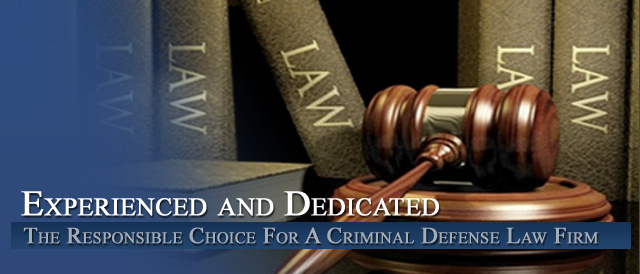




The Best Way to Defend a Colorado Criminal Case is To Control Your Emotional Reasoning
Welcome to the Land of Emotional Reasoning. To the north, you’ll find Never-Never Take Responsibility Land and just to the south you’ll find the Land Where It’s Always Somebody Else’s Fault.
Wikipedia defines emotional reasoning as “a cognitive error that occurs when a person believes that what [s]he is feeling is true regardless of the evidence.”
Emotional reasoners are prone to confusing their feelings with facts. Feelings are subjective internal states. Oftentimes, feelings arise because of an external event.
For example, a loved one dies and we experience grief and sadness. In this instance, an individual’s feelings and external reality are congruent.
Alternately, sometimes we misinterpret an external event and feelings arise that are incongruent with the precipitating event.
For example, you see a friend across the street and call out to her. She doesn’t acknowledge you and continues walking. As a result, you become angry and hurt because you assume that your friend rudely ignored you. In reality, your friend had her iPod on and didn’t hear you calling to her. .
Sometimes feelings arise from an internal event. Many emotional reasoners are prone to manufacturing dramas in their minds without much input from the external world. They live in the permanent present of whatever their immediate feeling state is — regardless of whether or not there’s a basis for it in reality.
The basic assumption is, “If I’m feeling this way, there must be a reason for it.” There may be a reason for the feeling, but it might not have anything to do with reality, but with unresolved fears, hurts and, quite possibly, pathologies.
Emotional reasoning, or rather, social-emotional intelligence isn’t all bad. It can be quite helpful actually. Empathy, compassion, knowing how to read others, picking up on the needs of others and being sensitive to the feelings of others are just as important as critical thinking and reasoning skills.
Research shows that the best managers and strategic reasoners utilize both IQ and social-emotional reasoning.
Critical thinking occurs in the brain. Emotional reasoning takes place in the heart, gut or some other part of our anatomy — this goes for men and women.
Emotional reasoners make choices based on what feels “good” or “right.”
Critical thinkers make decisions based on facts and what is just or sensible.
Why is Understanding Emotional Reasoning Important in Criminal Defense Law?
If you’re married to, dating or divorcing an abusive and possibly unstable ex, odds are she’s an emotional reasoner and emotional reasoners are also often persuasive blamers and persuasive blamers are often at the root of many a high-conflict divorce/high-conflict custody case, false allegations, smear campaigns and a host of other Kafka-esque behaviors, tactics and sometimes criminal offenses.
An abusive emotional reasoner will verbally eviscerate you, call you a bad father or mother in front of your kids, hit you and then tell you that their behavior was all your fault because you did . . . whatever they feel you did and insist that their behavior wasn’t really hurtful or abusive. They really love you and how could you accuse them of being so mean, selfish, abusive, etc., etc.?
These individuals can weave a web of distortions, half-truths, confabulations (lies told by liars who believe their own lies), blame, shame and guilt around you until you’re lost in a pink haze of their alternate emotionally-based “reality.” You may even start to believe the emotional reasoner’s “logic” even when you know better.
By the way, if you can fall prey to this, so can judges, attorneys, psychologists, court evaluators, friends, colleagues and family members.
Emotional reasoning can be seductive — even for those of us who are predominantly critical thinkers. The emotional reasoner is so persuasive, so convincing. You start to think, “Maybe it wasn’t that bad. Maybe I really did deserve to be called names. Maybe I really deserved to get hit. Maybe I really am a shitty dad . . .”
Stop yourself. Stop yourself right there. This is when emotional reasoning becomes a contagious trap.
Reality test.
If your mind is too clouded from the pink haze to do this on your own, call a friend. Call a family member. Call a therapist.
Call someone whose judgment you trust and reality test.
Emotional reasoning is usually easier than critical thinking. Critical thinking based on facts, evidence and logic takes effort and work. Emotional reasoning — not so much.
Don’t remember what really happened because your emotions were too out of control? Make something up.
Embarrassed by something you did or said? Deny it ever happened and blame whomever it is that’s making you feel bad about yourself.
Like Jason Alexander’s character George Costanza once reasoned on Seinfeld, “Jerry, just remember, it’s not a lie if you believe it.”
Want to get your way at the expense of someone else? You deserve it. You’re entitled. The person standing in your way hates you/is trying to control you/doesn’t understand you/doesn’t care about you/isn’t making you feel heard/isn’t making you feel loved/isn’t making you feel special. Tell everyone what a monster he or she is and maybe even have them arrested. After all, they deserve it. Who are they to tell you no or get in your way?
Hey, if it makes you feel better who cares about anyone else’s needs or feelings or pesky little minor details like the truth?
It’s not just individuals who are prone to emotional reasoning. Our society is becoming increasingly governed (I don’t mean politically, although, one could make an argument for this) by emotional reasoning.
You see evidence of it in the news everyday. Injustice results when we combine our proclivity for emotional reasoning and the rampant gender bias of “women = victim; man = villain.
Ask yourself – before you react – is this emotional or critical reasoning?
Other Articles of Interest:
- Tactics Defenses and Strategy
- Developing A Defense Strategy
- Search Warrants!
- Colorado Criminal Law Guide – Your Lawyer’s Duty To You – The Client
- Defense Strategies












